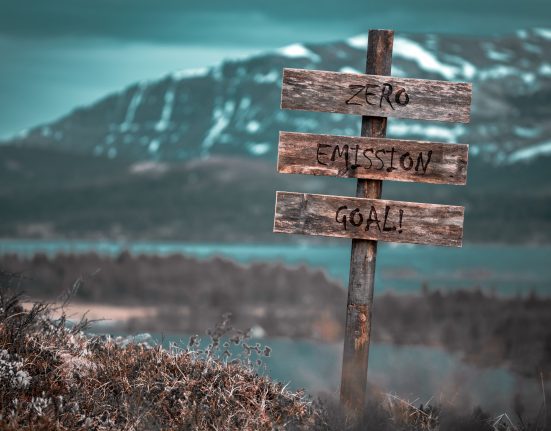As humans, we are curious creatures fascinated by what is on the other side of the fence. In the past, this led to grand discovery and innovation; however, today, it has led to pollution and various other adverse effects on our environment. The team at Waoh is culturally diverse, so we understand the desire to travel; however, it is essential to be aware of our impact on the world around us. That’s where travel sustainability comes in.
Travel sustainability is the mindful awareness of our actions on the environment when travelling; we must adopt specific practices to cultivate and sustain our beautiful environment. Here are the seven best exercises you can adopt for a sustainable travel lifestyle!
Slow Tourism
When exploring a new country, you may want to see everything it offers; unfortunately, this isn’t realistic. Instead, we encourage you to explore the idea of ‘slow tourism.’ Slow tourism is a mindful way of travelling that focuses on deep and meaningful experiences with a country’s people, food, and culture, aligned with sustainability practices. We encourage everyone to take on this philosophy as it will provide a more enriching experience that helps to preserve our world’s cultures and environments.
Walking, Running & Biking
Regardless of where you are, you can forgo motorised transport in exchange for the simple act of walking. Not only is this beneficial for the environment, but you will be able to explore more in-depth. It will save you money while also being healthier. Other low-cost, eco-friendly options include running or even biking.
If you cannot walk or bike, consider taking public transport over the alternatives of taxis and planes. The CO2 emitted by public transport, such as buses and trains is much less than by aeroplanes and taxis. Public transport is a great way to experience a country as you can gaze out the window and see everything there is to offer. You will also be provided with abundant experiences to converse with the locals. These discussions are a great way to learn local tips and tricks for getting everything you can out of the country.
Accommodation

Accommodation is essential; however, it is also a primary contributor to the detriment of mother nature. Unfortunately, many hotels and resorts are built on natural landscapes home to all kinds of wildlife. Thankfully, there are a rising number of eco-friendly and sustainable alternatives. Companies like Bookitgreen offer a eco-friendly travellers and sustainable accommodation through their online platform. The accommodation can vary from a homey cottage, to entire holiday homes. Regardless, each type of accommodation adheres to specific criteria, such as, but not limited to :
- Energy Saving Lighting
- Sustainable Building Practices
- Regionally-Sourced Food Products
- Water Saving Toilets
- 100% Green Energy
When you stay within eco-friendly accommodation, you are also exposed to people with in-depth knowledge and admiration for the surrounding communities and culture, helping to provide a more enriching experience. With mindfulness and a willing attitude toward change, sustainable travel is possible for the entire world.
Shopping
Travelling can result in a natural curiosity for all the souvenirs a culture can offer. However, the current trend of mass consumerism has led to various bad habits, including, but not limited to, purchasing from multi-conglomerate enterprises and the desire for the cheapest product around. Unfortunately, these standards result in a lack of demand for the products made by local artisans. This lack of demand can negatively impact the preservation of culture and the local community.
When visiting countries, you must be mindful of the product’s origin. Ask yourself, ‘is this souvenir authentic?’ or was it made in a factory in a completely different country? These conditions are valid when shopping for other items, such as clothing. When you decide to purchase from locals, you will not only be contributing to sustainable travel, but you will also receive a much more authentic, high-quality product.
Fast-Food Deliveries
With fast-food delivery services such as Uber Eats on the rise, the need for cooking is becoming less necessary. This lack of desire is especially true in a new country. However, we encourage you to get out of the house and try the local cuisine. You will save you money and provide a better experience of the culture. On Top of this, the food is much healthier and authentic.
It is beneficial to take things slow when eating; we believe the same is true regarding travelling. By taking things slow, you can take in the culture and surroundings more meaningfully. This slow approach will also help stimulate the local economy, helping to provide work for the people of the area you are visiting. Next time you travel, ditch the fast food and instead take things at a nearby local restaurant.
Local Farmers Markets
Local farmer’s markets are a great way to experience a country’s culture and food without exacerbating the current issue of CO2 emissions and pollution. One of the primary benefits of a farmer’s market is that it is near nearby farms. This geographical advantage helps reduce the amount of transport needed when hauling the produce and lowers the price. This method is also a great way to converse with the locals and learn more about their produce and cooking styles.

Airline Travel
Look, sometimes you can’t avoid taking a plane, and we completely get that. But there are options for managing your carbon footprint. The first is not to use planes when possible. If you can take public transport, like the train, we will always recommend this as the C02 emissions are much lower than in airline travel. Another method for reducing airline travel is opting for direct flights that don’t include multiple stopovers. A plane uses a lot of fuel, taking off and landing, so the less this happens, the less CO2 is emitted into the atmosphere. This method saves you a lot of time, so it’s a win-win for you and the planet. Another travel-sustainability hack within the airline industry is offsetting your carbon footprint. Many airlines will now offer this as an option at the digital checkout; however, you can also do it through third-party companies such as My Climate. As of 2022, to stop climate change, every single person would need to generate a maximum of 0.585t CO2 per year. However, Europe alone generates a total of 8.4t CO2 per person. The need for travel sustainability is desperate, and it’s essential to be as mindful as possible.
Conclusion :
Travel is an extraordinary experience; unfortunately, it comes at the cost of earth and mother nature. Over time, countries and governments are making changes that align with eco-friendly principles. However, the main culprit is us, the tourists. Like everything related to our climate and world, this is a collective responsibility for which we must take accountability. Small choices can make a massive difference over the long run, so we must band together.
If you have any travel sustainability tips, the team at Waoh would love to hear about them! Be sure to create an account and upload your ideas so we can all learn from one another.









